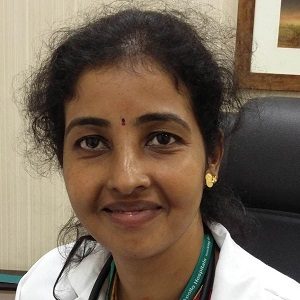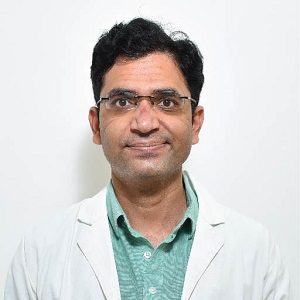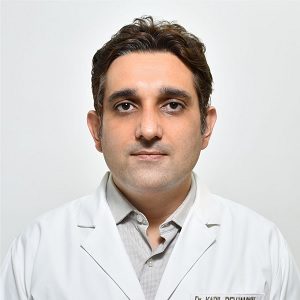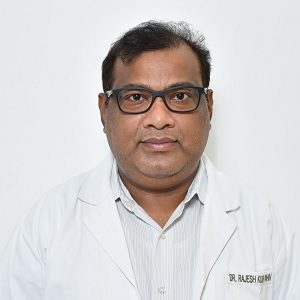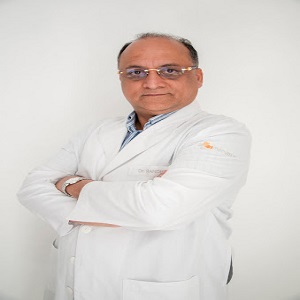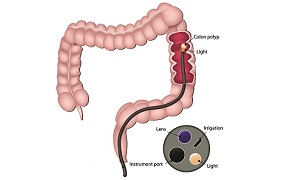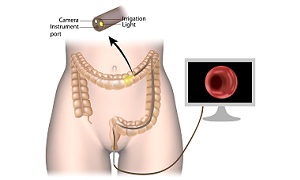Best Doctors in India for Rectal Cancer Treatment
- Gastroenterologist and GI Medicine Specialist, Chennai, India
- Over 18 years’ experience
- Apollo Hospitals Greams Road
Profile Highlights:
- Dr. Preethi M is one of the best gastroenterologists in India, with 18 years of expertise.
- Dr. Preethi received many awards for her contribution to the field.
- She offers consultation for Irritable Bowel Syndrome (IBS), Hemorrhoids, Endoscopy, female problems, and other gastrointestinal issues.
- Gastroenterologist and GI Medicine Specialist, Chennai, India
- Over 23 years’ experience
- Apollo Hospitals Greams Road
Profile Highlights:
- Dr. Ubal Dhus is a GI specialist doctor in South India who is proficiently managing Gastroenterological disorders for the past 23 years.
- He acquired his medical degree from Madras University, Chennai, and served people with Hemorrhoids Treatment, and Irritable Bowel Syndrome (IBS) Treatment.
- Gastroenterologist, Gurugram, India
- Over 7 years’ experience
- Artemis Hospital, Gurgaon
Profile Highlights:
- Dr. Abhinandan Mishra is one of the young Gastroenterology doctors in Gurugram who is particularly interested in inflammatory bowel disease treatment.
- Dr. Abhinandan Mishra offers Endoscopic Retrograde Cholangiopancreatography, Ascites tap, Endoscopy, Peroral Endoscopic Myotomy, Capsule Endoscopy, Esophageal Manometry, Magnetic Resonance Cholangiopancreatography, etc.
- Gastroenterologist, Gurugram, India
- Over 15 years’ experience
- Artemis Hospital, Gurgaon
Profile Highlights:
- Dr. Kapil Jamwal is a renowned GI practitioner in Gurugram with an extensive experience in digestive and liver disease.
- The specialist offers treatment for Hepatitis B, Jaundice, Hepatitis C, Inflammatory Bowel Syndrome, Acute Pancreatitis, Liver Diseases, and Irritable Bowel Syndrome.
- Gastroenterologist, Gurugram, India
- Over 18 years’ experience
- Artemis Hospital, Gurgaon
Profile Highlights:
- Dr. Rajesh Padhan is a renowned Gastroenterologist in Gurugram with an extensive experience of more than 18 years in the field.
- He is skilled in carrying out various endoscopy procedures such as Colonoscopy, Endoscopic retrograde cholangiopancreatography, Endoscopic ultrasound, upper GI endoscopy, etc.
- Top Gastroenterologist & Hepatologist | Max Hospital, Saket, New Delhi, India
- 28+ Years Experience
- Max Super Specialty Hospital, Saket, New Delhi
Profile Highlights:
- Dr. Kaushal Madan is a renowned Gastroenterologist and Hepatologist in India with over 28 years of experience.
- He specializes in diagnosing and treating various digestive system disorders, including liver cancer, liver cirrhosis, fatty liver, and hepatitis B and C.
- Dr. Madan provides comprehensive care to liver transplant recipients, offering both pre- and post-operative support.
- He currently serves as the Director and Head of Clinical Hepatology Department at Max Super Speciality Hospital in New Delhi.
- Gastroenterology, Medanta - The Medicity, New Delhi, India
- 40+ Years Experience
- Medanta-The Medicity, Gurgaon
Profile Highlights:
- Dr. Randhir Sud is a preeminent figure in the field of gastroenterology, renowned for his groundbreaking contributions to gastrointestinal endoscopy and therapeutic interventions.
- As the Chairman of the Gastroenterology department at Medanta in Gurugram, Dr. Sud has played a pivotal role in advancing the field of gastroenterology in India.
- Dr. Sud is credited with revolutionizing the practice of gastrointestinal endoscopy in India. He has been instrumental in establishing and integrating advanced GI endoscopic therapy into clinical practice through extensive training programs and live workshops.
Best Hospitals in India for Rectal Cancer Treatment
Hospital Highlights:
- Apollo Hospitals is a private healthcare group in India, with its headquarters based in Chennai. Established in 1983 by Dr. Prathap C. Reddy, the group offers a wide range of medical treatments and services across various specialties.
- It is renowned for emphasizing innovation and utilizing cutting-edge medical technologies into patient treatment.
- Known as India’s first corporate hospital, Apollo Hospitals is often credited for pioneering the private healthcare revolution in the country.
- With clinics and hospitals located all throughout India, Apollo Hospitals is a nationwide healthcare organization. Its presence can also be found in foreign countries.
- Preventive health examinations, medical and surgical treatment, and diagnostic centres are just a few of the services that the Apollo group provides.
- The group has several centres of expertise, including Cardiac Sciences, Neurosciences, Orthopedics, Emergency Care, Cancer Care, and Organ Transplantation.
- City: Chennai, India
Hospital Highlights:
- RIMC is a multi-specialty hospital in a sprawling area of 36 acres located in Chromepet, Chennai, Tamil Nadu, India.
- The facility has 450 beds including 130 critical care beds, 9 operating rooms, modern reference laboratories and radiology services, and is conveniently located near road, rail and air transportation.
- RIMC is led and managed by world-renowned physicians committed to healthcare.
- RIMC offers the broadest range of clinical care, education, and research. The hospital offers state-of-the-art technology and modern treatment facilities designed to provide health care at an affordable cost.
- Rela Institute is driven by patient needs, comfort and confidence.
- City: New Delhi, India
Hospital Highlights:
- Fortis Hospital in Shalimar Bagh is a multi-super specialty hospital that strives to provide world-class patient care by leaving no stone unturned.
- Fortis, Shalimar Bagh, with 262 beds and a 7.34-acre footprint, provides the best level of medical care through its team of doctors, nurses, technicians, and management professionals.
- City: Bengaluru, India
Hospital Highlights:
- Established in 2007, the Apollo Hospitals Bangalore is a 300-bed multispecialty hospital situated in Bannerghatta Road, Bangalore.
- Equipped with the state-of-the-art technology, it is a leading hospital dedicated to providing healthcare needs to patients with compassion and expertise.
- It is the first hospital to have completed the highest number of Robot Assisted Heart Surgeries in India.
- Over the years, it has successfully conducted some of the rarest medical procedures such as spinal angiolipoma excision, autologous chondrocyte implantations, and tibial tuberosity shift with MPSL reconstruction.
- The Apollo Hospitals Bangalore has the reputation of performing the greatest series of airway stents in the country.
- Additionally, the hospital is known for providing comprehensive treatment in specialties such as gastroenterology, urology, gynecology, oncology, colorectal surgery, etc.
- The “The Minimal Access Surgery Centre” (MASC), one of Apollo Hospitals, Bangalore’s premier Centres of Excellence, is devoted to the use of minimally invasive surgical procedures.
- In 2013, THE WEEK-A C Nielsen, Best Hospital Survey ranked Apollo Hospitals Bangalore as the 2nd best multi-speciality hospital in Bangalore.
- City: Mumbai, India
Hospital Highlights:
- Gleneagles Global Hospital The 450-bed facility comprises of 17-stories, housing state-of-the-art infrastructure, and advanced medical care facilities.
- The hospital offers end-to-end clinical, surgical, and diagnostic services. It is equipped with a team of eminent medical professionals aided by qualified nurses and medical staff
- The Hospital offers advanced Endoscopic procedures, Hepatobiliary and Liver Surgeries, Surgical and Medical Gastroenterology, Bariatric Surgery, and Robotic surgery.
- The hospital is a center of excellence for Orthopedics, Joint Replacement, Knee Replacement, and Hip Replacement surgery.
- City: Hyderabad, India
Hospital Highlights:
- CARE Hospitals were established in the year 2000, by CARE Group.
- The multispecialty hospital has 435 beds, including 120 critical care beds, with an annual inflow of 180000 outpatients and 16,000 in-patients.
- The hospital provides specialty medical services in Cardiology, Cardiothoracic Surgery, Pediatric Cardiology, Pediatric Cardiothoracic Surgery, Neurology, Neurosurgery, Nephrology, and Urology.
- The hospital has the first dual source, 128 slice CT scanner (for high precision cardiac imaging) – the first of its kind in south India.
- The hospital offers a wide range of accommodation facilities for the convenience of its varied patient base, ranging from general wards to super deluxe rooms.
- City: Mumbai, India
Hospital Highlights:
- Fortis Hospital in Mulund is a 315-bed multi-speciality tertiary care hospital with five JCI accreditations that offers a wide variety of diagnostic and treatment services. The Fortis Hospital in Mulund delivers patient-centred treatment with cutting-edge technology, highly skilled and experienced surgeons, and paramedical staff.
- This institution houses Maharashtra’s largest multi-organ transplant centre. It is also the first heart transplant centre in western India to conduct 100 or more consecutive heart transplants in under four years. It is the only hospital in the city to have multi-organ transplants and has handled the youngest patient for angioplasty. Fortis Hospital Mulund now boasts the first advanced surgical robot in central Mumbai.
- Cardiology and heart surgery, urology, nephrology, neurosciences, orthopaedics, digestive care, emergency and critical care, and maternity care are among the services provided by the hospital.
- City: New Delhi, India
Hospital Highlights:
- Manipal Hospitals, Dwarka, is a super-specialty hospital in Dwarka, New Delhi, which is a part of Manipal Hospitals Group.
- The hospital aims to provide the best treatment on par with international standards at a fraction of the cost.
- Equipped with 380 beds, the hospital is also one of the new age hospitals which are equipped fully with state-of-the-art infrastructure, cutting-edge technology as well as the latest and advanced clinical practices. The hospital also has 13 modular Operation theatres with 118 beds which are solely meant for critical care.
- The hospital comprises internationally acclaimed doctors and highly professional and experienced hospital and medical staff who are able to provide preventive, therapeutic, and diagnostic services all under one roof.
- City: Chennai, India
Hospital Highlights:
- Located in Chennai, India, MGM Healthcare is a top multispecialty hospital that provides all medical services under one roof.
- Since its founding in 2019, MGM Healthcare has quickly become a leading national referral centre, creating several innovative flagship initiatives.
- MGM Healthcare combines next-generation medical and digital technologies to provide better patient results.
- With 12 centres of excellence, more than 400 inpatient beds, 100 intensive care unit beds, and 24/7 emergency care, MGM Healthcare leaves no chance in redefining the patient experience in Chennai.
- MGM Healthcare boasts 250+ expert doctors across 30+ departments, including Cardiology, Pulmonology, Neurology, Obstetrics & Gynaecology, and more.
- They house 12 specialized Centres of Excellence, including Neurosciences, Orthopaedics, and Multi-Organ Transplantation.
- Their team of doctors, nurses, and paramedics works together to give every patient individualized treatment.
Hospital Highlights:
- Lilavati Hospital & Research Centre is India’s premier multi-speciality tertiary care hospital and has been recognised as a global medical excellence centre.
- Lilavati Hospital & Research Centre has built an unrivalled level of trust with its patients over the years, thanks to a solid foundation that comprises cutting-edge facilities, the best medical competence, research, education, and charity endeavours.
- The hospital is quite proud of the fact that it now serves patients from all kinds of backgrounds, not just from the United States but from all around the world.
- The hospital has a total of 323 beds, one of the largest Intensive Care Units (ICUs), 12 Operation Theatres with modern amenities, over 300 consultants, and almost 1,800 personnel.
Rectal Cancer
Rectal Cancer is a type of cancer that develops in the cells of the rectum. Your rectum is located below the sigmoid colon, above your anus. Cancer inside the rectum (known as rectal cancer) and inside the colon (known as colon cancer) are usually referred to together as colorectal cancer. Across, the world, colorectal cancer is the second most common cancer among females and the third most common among males.
Although in the past, people with rectal cancer mostly did not survive for the long-term, thanks to advanced treatment in the past few decades, the survival rates among people having rectal cancer have improved drastically.
Symptoms
In the early stages, rectal cancer might show no obvious symptoms. As the disease continues to develop, symptoms can include changes in bowel movement, rectal bleeding, as well as a thin stool. There might be other signs and symptoms as well, such as:
- Fatigue
- Weight Loss
- Blood in the stool
- Diarrhea and/or constipation
- Bloating
- Abdominal Pain
- A feeling of being unable to empty the bowels
If your cancer metastasizes or spreads to other body parts, then symptoms can vary depending on where in the body your cancer is located. Some of the symptoms of metastatic rectal cancer include:
- Persistent cough
- Shortness of breath
- Loss of appetite
- Fatigue
- Bone pain
- Jaundice
- Swelling in the hands and feet
- Changes in vision or speech
Causes
Rectal cancer begins when your body’s healthy cells in the rectum develop changes or mutations in their DNA. A cell’s DNA contains all instructions that instruct it what to do.
These changes instruct the cells to grow uncontrollably and to continue living, whereas healthy cells would die normally. These accumulating cells can become a tumor. Within time, the cancer cells might grow to invade and destroy any healthy tissue nearby. And cancerous cells can break away and travel i.e. metastasize to any other parts of the body.
Generally, for most rectal cancers, it is unclear what leads to the mutations that cause cancer to form.
There are some inherited gene mutations as well, which can increase the risk of this cancer. One of these is known as Lynch syndrome. This disorder can raise the risk of colon and other cancers, especially before the age of 50.
Another such syndrome that increases the risk of rectal cancer is familial adenomatous polyposis. This disorder that can cause polyps in the lining of the colon and rectum is usually rare. Without treatment, it may increase the risk of colon or rectal cancer, especially before the age of 40.
Other risk factors for rectal cancer are:
- Age- Diagnosis usually occurs after the age of 50, although rates are increasing among younger people.
- Family history- Personal or family history of colorectal cancer can also increase risk.
- Race- African Americans are at a higher risk than other ethnicities of developing rectal cancer.
- Radiation therapy– If you have undergone radiation therapy in the abdominal area, it might increase risk.
Other conditions that may increase risk include:
- Ovarian cancer
- Obesity
- Polyps
- Inflammatory bowel disease
- Type 2 diabetes that’s not well managed
Some lifestyle factors can sometimes play a role in colorectal cancer as well:
- Diet with too few vegetables and too much red meat
- Smoking
- Lack of exercise
- Consuming over three alcoholic drinks a week
Diagnosis
Your doctor is most likely going to begin by first taking your medical history. Then he/she will need to perform a physical examination.
Sigmoidoscopy
Next, a fecal immunochemical test or a sigmoidoscopy might also be recommended. If these steps are positive for cancer, the next step is going to be a colonoscopy.
Colonoscopy
A colonoscopy involves your doctor using a thin tube with a light and a camera at the end to view the inside of your rectum and colon. They are usually able to remove any polyps they can find at this time. During this test, your doctor can also collect tissue samples for later examination in a lab. These samples can be viewed under a microscope to determine if they are cancerous. They may also be tested for genetic mutations that are associated with colorectal cancer.
Blood test
Ultrasound
Once your doctor is able to confirm the diagnosis, the next step is going to involve determining how far it might have spread.
Your doctor might use an endorectal ultrasound in order to examine your rectum and its surrounding area. For this, your doctor will need to insert a probe into your rectum to produce a sonogram, a type of image.
Imaging tests
Your doctor might need to use other imaging tests as well, such as an X-ray or an MRI, to look for any signs of cancer throughout the body.
Treatment
Treatment for rectal cancer generally involves a combination of therapies. When possible, surgery is used to remove or cut away the cancer cells. Other treatments such as chemotherapy, and radiation therapy, might be used after the surgery, to kill any cancer cells that remain as well as reduce the risk that the cancer is going to return.
If the surgeons are concerned that your cancer is not removable completely, without hurting any nearby organs, then a combination of radiation therapy and chemotherapy might be recommended initially. These kinds of treatments can help in shrinking the cancer cells and make them easier to remove during the operation.
Surgery
Surgery is generally the most common and preferred method for removing the cancer cells. There are various kinds of surgeries that may be performed, depending on the location and stage of cancer, how aggressive the cells are, as well as your overall health, and your preferences.
The surgery can be of various types, including any of the following:
Removing very small cancers from the inside of the rectum
Very small rectal cancers can be removed with the help of a colonoscope or a specialized type of scope inserted through the anus. Surgical tools can be passed through the scope for cutting away cancer and some of the healthy tissue around it.
If your cancer is small and unlikely to spread to any nearby lymph nodes, then this procedure is an option. If a lab analysis indicates that your cancer cells are aggressive or more likely to spread to the lymph nodes, then it is likely that your doctor is going to recommend additional surgery.
Removing all or part of the rectum
This might be required for larger rectal cancers that are far enough away from the anal canal. It involves the removal of any nearby tissue and lymph nodes as well. This procedure can help in preserving the anus so that the waste is able to leave the body normally.
How this procedure will be performed, is going to depend on the location of the cancer. If your cancer is affecting the upper portion of the rectum, then this part of the rectum is removed, after which the colon is attached to the remaining rectum. All of the rectum might require removal as well if the cancer is located in the lower portion of the rectum. Then the colon is shaped into a pouch after which it is attached to the anus.
Removing the rectum and anus
If your rectal cancer is located near the anus, it might be not possible to remove cancer completely without damaging the muscles that control the bowel movements. In these situations, surgeons may recommend an operation which is termed abdominoperineal resection (APR). This involves removing the rectum, anus as well as some of the colon, and its nearby tissue and lymph nodes.
The surgeon then creates an opening in the abdomen and attaches the remaining colon to it. Waste is able to leave your body through this opening and collects in a bag attached to the abdomen.
Radiation therapy
Radiation therapy involves using powerful energy beams, such as X-rays and protons, to kill the cancer cells. In people who are suffering from rectal cancer, radiation therapy can also be combined with chemotherapy as it can make the cancer cells more likely to be damaged by radiation. It may be used after surgery as well, to kill any cancer cells that are remaining. It can be used before surgery as well, to shrink cancer, making it easier to remove.
Radiation therapy can also help in relieving symptoms like pain.
Chemotherapy
Chemotherapy involves using drugs to destroy cancer cells. For rectal cancer, chemotherapy might also be recommended after surgery in order to kill any cancer cells that are remaining.
Chemotherapy can also be combined with radiation therapy might before an operation to shrink large cancer so that it becomes easy removing it with surgery.
Chemotherapy may also be used to relieve symptoms of rectal cancer which is not removable with surgery.
Targeted drug therapy
Targeted drug treatments are meant to focus on specific abnormalities that exist within cancer cells. When these abnormalities are blocked, targeted drug treatments can lead to the death of the other cancer cells.
Targeted drugs are generally combined with chemotherapy. Generally, they are reserved for people having advanced rectal cancer.
Immunotherapy
Immunotherapy is a drug treatment that strengthens your immune system to fight cancer. Your body’s immune system might not attack your cancer as the cancer cells produce proteins and these hide them from the immune system cells. Immunotherapy can help to interfere with that process.
Immunotherapy is also generally reserved for advanced rectal cancer.
Prevention
Exercising for at least 30 minutes a day can help to increase the risk of rectal cancer. Eating a variety of fruits, vegetables, whole grains, and maintaining a healthy weight, can also help.
If you are a smoker, it is important to stop. If you choose to drink alcohol, drink it in moderation. For women, it should not exceed one drink a day, and for men, it shouldn’t exceed two.

